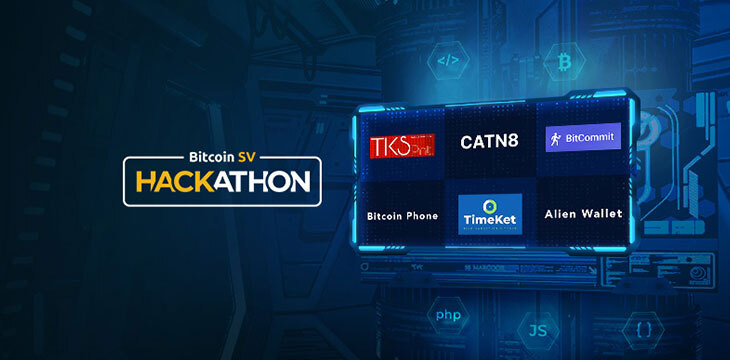|
Getting your Trinity Audio player ready...
|
The semi-finalists for the fourth Bitcoin SV Hackathon have finally been unveiled. Eight weeks since the hackathon began, six projects made the shortlist—including an SPV wallet with its own pay-to-order hash function and a trustless fitness application, among others.
The 4th Bitcoin SV Hackathon began on July 14, with the theme for this iteration being “peer-to-peer applications,” as developers were urged to utilize the recently released SPV Channels in their applications. They also had to integrate the Merchant API (mAPI), yet another tool that’s only offered on Bitcoin SV.
The six #BitcoinSV Hackathon semi-finalists explore the unique capabilities of the #BSV blockchain.
Read more about the exciting peer-to-peer (#P2P) applications built on #BSV and the $100,000 prize pool to be shared by the three finalists.
https://t.co/HMmWYfOFRc— BSV Association (@BSV_Assn) August 17, 2021
Several developers joined the competition, with their eyes firmly focused on the $100,000 prize pool, payable in BSV. And three weeks after the coding round for the Hackathon ended, Bitcoin Association has announced the shortlist for the six applications that are bound for the semi-finals.
“With a challenging theme and complex requirements to remind developers about the often-forgotten P2P aspect of Satoshi’s intended Bitcoin system, it’s been impressive to see the different approaches employed by our participants. I congratulate all the semi-finalists and look forward to seeing who are selected as the three finalists,” Bitcoin Association Founding President Jimmy Nguyen said.
Meet the semi-finalists
Tom Middleton’s Alien Wallet, which is an SPV wallet that has its own pay-to-order hash function, is one of the semi-finalists. Bitcoin Phone, an app for broadcasting voice data over the Bitcoin network, also made the cut. Developed by Canadian developer Joe Thomas, the application leverages the non-finality of nSequence to enable real-time data streaming.
Dave Foderick and Marcel Gruber teamed up to develop CATN8, and together they have marched into the semi-finals. Their application is an online video platform that enables micropayments, with a full peer-to-peer SPV wallet implementation.
BitCommit, an application for trustless fitness competition incorporating smart contracts and micropayments also made it to the semi-final stage, as did TimeKet, an SPV wallet that has its own reservation and payment validation system. TimeKet was developed by Canadian developer Joonyeong Park and Youngjin Jang, one of two developers from Japan who made it to the semi-final stage.
Completing the list is Japanese developer Meta Taro whose TKS Pnt—a point tokenization system for both customer and merchants—impressed the judges.
Three of the six semi-finalists will be selected to march on to the finals and will get to present their projects to an elite judges’ panel at the upcoming CoinGeek New York on October 5-7. The project that takes first place will land $50,000, with the second and third getting $30,000 and $20,000 respectively.
For nChain CTO Steve Shadders, the most impressive thing about the six projects was how creatively they had applied SPV Channels.
He said, “Having worked intimately on introducing the Bitcoin SV implementation of SPV Channels, I’ve been intrigued to see how developers would approach it – and for a first foray with this new technology, I’ve been impressed with the early returns we’ve seen so far.”
Register to join the eighth CoinGeek Conference, taking place at The Sheraton, Times Square in New York City on October 5-7.

 03-03-2026
03-03-2026 




